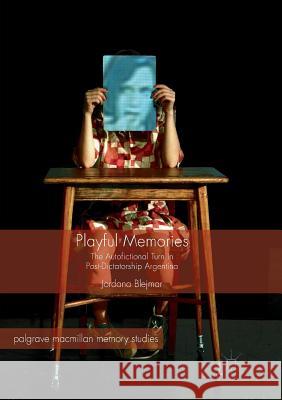Playful Memories: The Autofictional Turn in Post-Dictatorship Argentina » książka
topmenu
Playful Memories: The Autofictional Turn in Post-Dictatorship Argentina
ISBN-13: 9783319822297 / Angielski / Miękka / 2018 / 233 str.
Playful Memories: The Autofictional Turn in Post-Dictatorship Argentina
ISBN-13: 9783319822297 / Angielski / Miękka / 2018 / 233 str.
cena 307,69 zł
(netto: 293,04 VAT: 5%)
Najniższa cena z 30 dni: 306,26 zł
(netto: 293,04 VAT: 5%)
Najniższa cena z 30 dni: 306,26 zł
Termin realizacji zamówienia:
ok. 20 dni roboczych.
ok. 20 dni roboczych.
Darmowa dostawa!
Kategorie:
Kategorie BISAC:
Wydawca:
Palgrave MacMillan
Seria wydawnicza:
Język:
Angielski
ISBN-13:
9783319822297
Rok wydania:
2018
Wydanie:
Softcover Repri
Ilość stron:
233
Waga:
0.30 kg
Wymiary:
21.01 x 14.81 x 1.32
Oprawa:
Miękka
Wolumenów:
01
Dodatkowe informacje:
Wydanie ilustrowane











